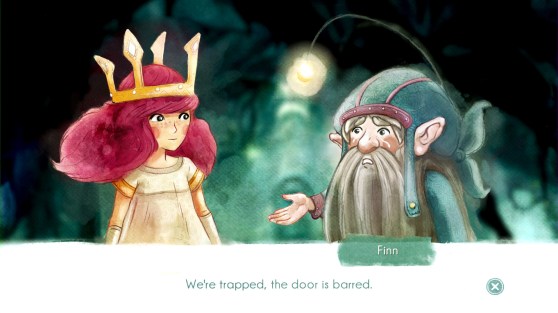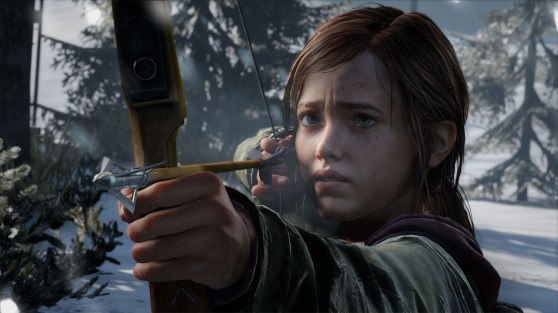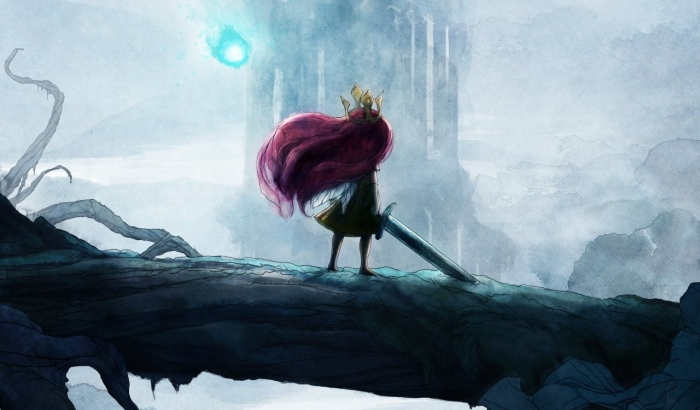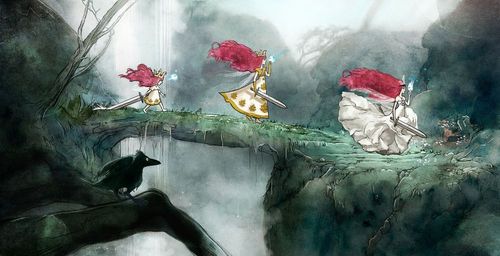This post has not been edited by the GamesBeat staff. Opinions by GamesBeat community writers do not necessarily reflect those of the staff.
It’s no exaggeration to say that I am a lifelong gamer. I just turned 31 this month and have found joy in games since the day I was able to hold a controller. My mother grew up in a time when games like Pac-Man, Space Invaders, and Galaga were still a huge draw at local arcades and pizza places in Brooklyn, N.Y. Luckily for me, she was a fan and was somehow able to get us an Atari 2600 when I was still very young.
I say “somehow” because I grew up pretty poor. We weren’t living in abject poverty, but we did struggle. I can’t begin to describe the wonder I felt as a child when I first discovered video games. Even back then, with their primitive, pixelated visuals and bleep-bloop sounds, video games entranced, entertained, and delighted me more than anything.
As I grew older, I continued to turn to video games to keep me happy. My mother raised my sister and I all by herself, so you can imagine she was often working to keep us fed. My older sister had lots of friends and was often out with them. I was alone in our tiny apartment pretty regularly. The Atari and, later on, the Nintendo Entertainment System were my best friends. I would borrow games from friends and neighbors all the time and lose myself in them completely. The original The Legend of Zelda enabled me to undertake an adventure and experience wonder and excitement I couldn’t get in the real world.
 I kept playing games throughout my life, and as they became a bigger medium and technology continued to advance, my enthusiasm for them only deepened. Even as an adult, games continue to help me to cope with loneliness and feelings of insecurity that I never shook as a kid. But these days, I find myself being drawn to titles in which I play the role of a child. Lately, some of my favorite game experiences have been in games like Child of Light, Papo & Yo, and Attack of the Friday Monsters, which have the player taking control of a kid.
I kept playing games throughout my life, and as they became a bigger medium and technology continued to advance, my enthusiasm for them only deepened. Even as an adult, games continue to help me to cope with loneliness and feelings of insecurity that I never shook as a kid. But these days, I find myself being drawn to titles in which I play the role of a child. Lately, some of my favorite game experiences have been in games like Child of Light, Papo & Yo, and Attack of the Friday Monsters, which have the player taking control of a kid.
I found myself wondering, just what is it about playing as a child protagonist that I enjoy? When I was a kid, I wanted to be Ryu and Ken. I wanted to be Spider-Man and Wolverine, Raphael and Donatello. I wanted to be the hero with all the superpowers who could tackle any obstacle. I imagined what kinds of things I would be able to do when I was an adult.
As a grown man, I find it more and more difficult to relate to the big, burly hero. The Nathan Drakes and Dantes. The Kratoses and Call of Duty soldiers. I don’t really enjoy being a super high-powered bruiser who can take down anyone or anything in his path. Because I just can’t relate. Now, that’s not to say these games are without merit. They are entertaining as hell, and Lord knows they’ve found an audience. But they just don’t do it for me anymore.
Warning! Some game spoilers below for Child of Light, Ni No Kuni, Papo & Yo, and The Last of Us.

The most recent game I completed was Ubisoft’s Child of Light. After seeing trailers and reading previews, I knew I’d love it. Ubisoft did a great job of creating a game that married children’s storybooks with Japanese role-playing game elements. But what really stuck with me after finishing it was how sad it felt. While the protagonist, Aurora, is not a completely powerless little girl (she learns to fly and can summon forth some pretty destructive magic), she still feels a very real childlike sense of helplessness as she is unable to get to her father, the king, when he is ill.

Even in battle, where Aurora can more than hold her own against enemies and bosses, the player is reminded that she is just a little girl. She struggles to swing a sword that is nearly the same size she is, and her crown goes tumbling from her head when she is under attack. This feeling of both empowerment and helplessness made Child of Light a more memorable experience for me. Ni No Kuni’s main character, Oliver, was placed in similar circumstances as he gained great power as a wizard but had to deal with the loss of his mother at the same time.
Another title that profoundly affected me was Minority Media’s Papo & Yo, a game I have written about quite a bit since its release. You play as Quico, a young boy who escapes his abusive, alcoholic father by entering a world where his robot toy, Lula, comes to life and he can move entire buildings just by picking up cardboard boxes. Quico’s journey to find a cure for his friend Monster is filled with moments of powerlessness, such as when Monster eats the poisonous frogs he is so fond of, flies into a fiery rage, and violently attacks Quico, throwing him into the air.
Papo & Yo, based on creator Vander Cabellero’s own tragic childhood, puts the player in the small shoes of a boy who must ultimately learn that there is no cure for Monster — that no matter what he does, he is still only a child who must accept things as they are. As someone who grew up with a father who fell victim to drug use, I felt a deep connection to Papo & Yo. I still play through it every so often, and its conclusion brings me to tears every time.
Another PlayStation 3 exclusive title, The Last of Us, had a similar and unexpected effect on me. For the majority of the game, the player is in control of Joel, an adult man who is more than capable of holding his own in a fight and is well versed in using weapons. Sure, enough clickers and Joel will go down just as quickly as a child would, but overall, he’s a pretty strong dude. But it was at a certain point in the game when Joel becomes injured and the player must take control of Ellie, the child he’s tasked with protecting, that things changed.

Ellie is a 14-year-old orphan who grows up in a post-apocalyptic world. While she is savvy and good at taking care of herself for the most part, there are moments where, playing as her, I felt like I was weak and vulnerable — most notably, when Ellie is captured while trying to help Joel. Not only is Ellie a child, she’s also a girl in a world full of sociopaths, where laws have no meaning and anarchy ensues. Playing as Ellie evoked not only those feelings of fear and powerlessness I had as a child but also a feeling of what it would be like to be a young woman in this world:
[youtube http://www.youtube.com/watch?v=ASPBu7Fko6s]
The 3DS exclusive title Attack of the Friday Monsters, developed by Level 5, has the player controlling a child named Sohta in 1970s Japan. But rather than inducing the feelings of helplessness like the games mentioned above, it brought on a childlike sense of wonder.
 Following Sohta and his schoolmates around their quiet little town on a quest to unravel the mysteries of the Friday Monsters made me remember how much fun it was to wander as a kid. I remembered playing in my grandmother’s apartment backyard, looking under rocks for insects, chasing cats, jumping over puddles, and pretending it was all a vast wilderness for me to explore and have adventures in. In this case, it wasn’t powerlessness or sadness or loneliness that stood out to me but rather that perfect feeling of wonder.
Following Sohta and his schoolmates around their quiet little town on a quest to unravel the mysteries of the Friday Monsters made me remember how much fun it was to wander as a kid. I remembered playing in my grandmother’s apartment backyard, looking under rocks for insects, chasing cats, jumping over puddles, and pretending it was all a vast wilderness for me to explore and have adventures in. In this case, it wasn’t powerlessness or sadness or loneliness that stood out to me but rather that perfect feeling of wonder.
There are certainly many more titles that put us in the roles of child protagonists — like Ico, Shadow of the Colossus, and the Persona series, for example. But these recent titles have stayed with me. They reminded me what it was like to be a kid. That being a child was filled with moments both sad and wonderful. That I felt both weak and powerful, afraid and strong. And that oscillating between these feelings is something one never really grows out of.
Don’t get me wrong — I love games that offer me the chance to be a powerful wizard, nimble thief, or even a superpowered brawler. But there will always be something about these games that offer me a chance to be a kid again that will continue to stay with me long after I have completed them. I was lucky enough to grow up as a gamer. I was able to step into worlds that enabled me to go on adventures. And now, I’m lucky to be a gamer in a time when developers are using games to tell stories — that can touch use, empower us, fill us with wonder, and teach us that it’s normal for the child in us to feel powerless from time to time. We can overcome these feelings if we allow ourselves to let go of them and test the limits of what we are capable of.


